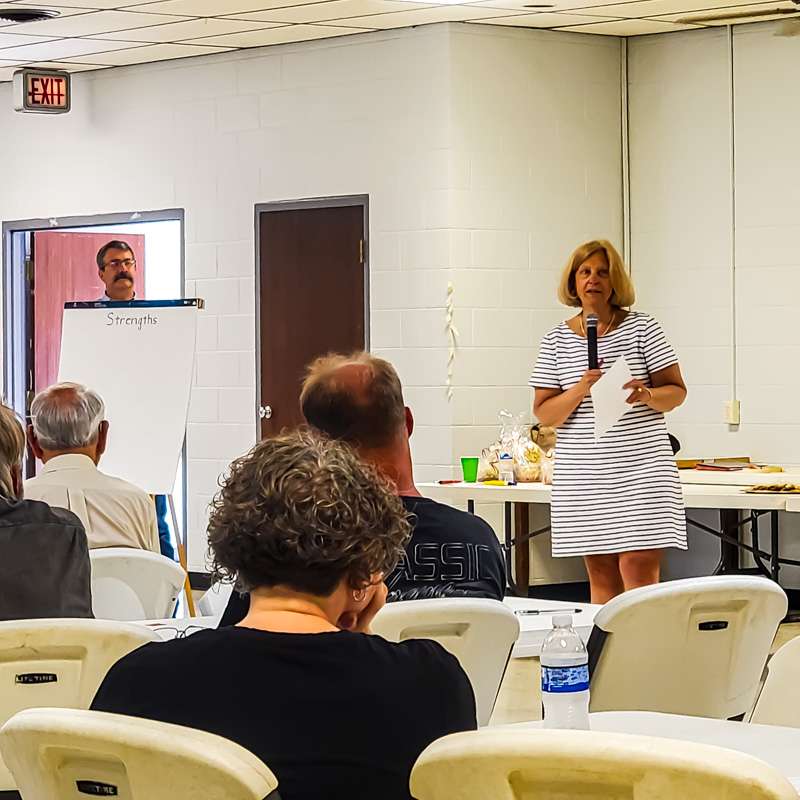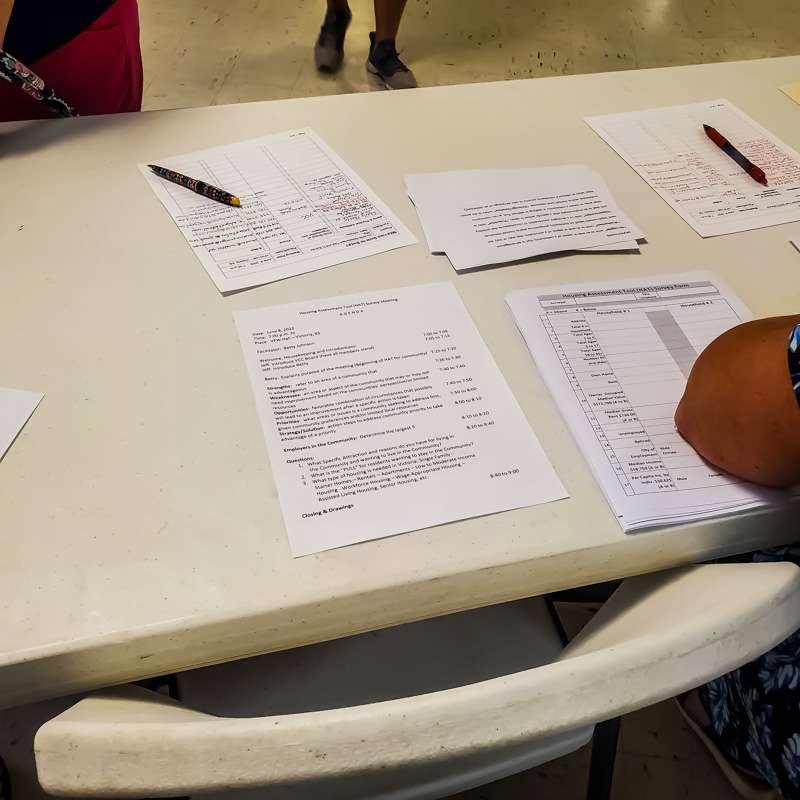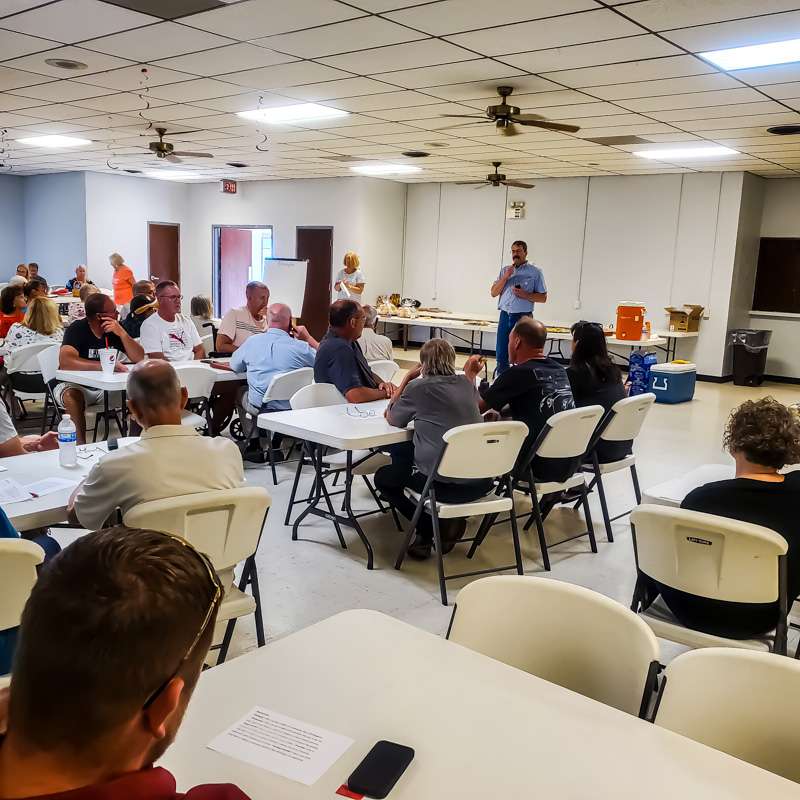
By JAMES BELL
Hays Post
VICTORIA — On Wednesday, Victoria residents gathered at the Veterans of Foreign Wars hall, 204 E. Main, to discuss issues the community faces while compiling data for a Housing Assessment Tool required for state funding applications.
The Victoria Community Coalition organized the meeting, led by Coalition member Jeff Pfeifer and nonprofit organizer with the Dane G. Hansen Foundation, Betty Johnson.
“I am tickled pink just to see everybody here,” Pfeifer said. “It means a lot to me to have every one of you take some time out of your busy week or evening where you like to relax and come out here to do something for our community. And that’s what we’re here tonight to do.”
The meeting’s main goal was to allow the coalition to gather feedback and have surveys completed from area residents that will enable grant funding applications to benefit the city and its residents.
“We’re trying to partner with the city to go after some of this grant money that’s out there that could help our community,” Pfeifer said. “It could be on buildings and could be on roads.”
He noted the ongoing repair work on Cathedral Avenue, funded with grant funds along with improvements to the city’s water system.
“We need to start someplace,” Pfeifer said. “And that’s just with getting the community together and having some ideas about what you think it could look like in the future.”
Kicking off the information gather session, Johnson asked the crowd to consider the city’s strengths.
The crowd quickly noted the work ethic engrained in the citizens of Victoria, along with strong ties to faith, family and the community.
And while the community’s strengths centered around the people, when the time came to discuss weaknesses, a lack of significant business in town was offered as a primary concern.

Along with the desire to see a grocery store of some sort, perhaps in the vein of a Dollar General-type location, a lack of housing and child care was among the top needs for the community.
While many more significant concerns were prominent parts of the conversation, smaller actionable ideas also entered the conversation as the discussion drifted toward opportunities.
And they noted, small steps like planting trees and creating more activities for city youngsters assists in the effort to recruit and retain younger families to the city.
“We also need to get more people involved,” Johnson said.
The group then prioritized needs, with housing and childcare offered as the most pressing. However, as the conversation continued, prioritizing shopping locally, whenever possible, was noted as an important way to ensure businesses that open in Victoria remain viable.
But a farmers market was proposed as a way to encourage local shopping without the need for a business to open.
“Those are quite popular,” Johnson said. “Then you could really do some community building around them if you do it on a Wednesday evening. I’ve got one community that brings in some of the high school kids and play music, and they have a food truck comes in occasionally, and they kind of have community events around their middle of the week evening.
“It’s really got to be a little community party every Wednesday night,” she continued. “So you can really kind of have fun with that and really take that idea and start building.”
A cooperative grocery store was also proposed.

“We’ve got models out there across northwest Kansas,” Johnson said. “So we’ve been doing that.”
She also encouraged the crowd to explore what other similarly size area towns have done to grow their commerce options.
“Reach out to some other similar communities and see what they’re doing,” Johnson said. “Go visit and talk with some of their locals and see what they’re doing and see what you could work and what you could bring back here. … There’s a lot of great things happening in our small rural communities. A lot of them are really taking a lot of initiative.”
For Victoria, a start to many initiatives is getting surveys back from the community. While attendees filled in their surveys at the meeting, many more are needed, and Pfeifer said ultimately, if needed, committee members will go door to door.
“If you’re trying to get steps and you want to get your steps done, I’m sure they could use some volunteers to help knock on doors and enhance some of those out,” Johnson said.
And the more surveys, the better, she said.
“The better the participation, the more chance of getting the grants and the dollars,” Johnson said.







